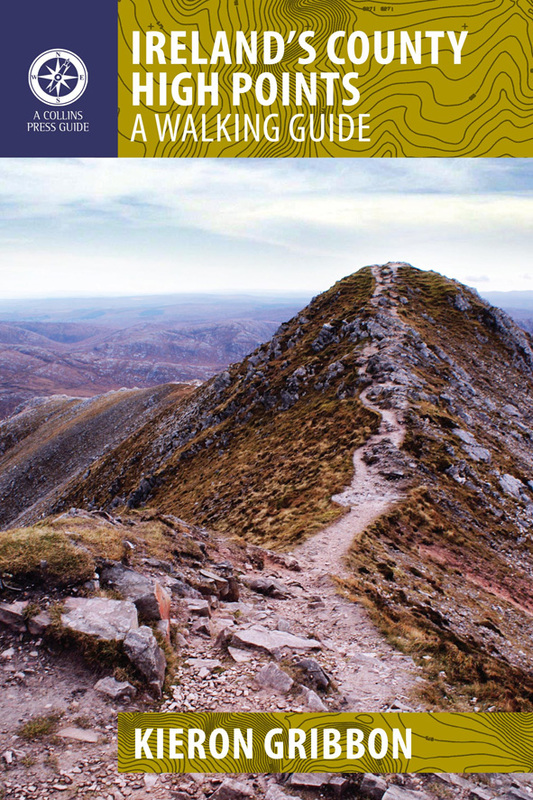|
Any person who sets a new record for an original Irish hill list can request a Certificate of Excellence bearing a Gold Award. Recipients of these awards will also be added to our Excellence Register.
|
|
The rules
The allocation of each Certificate of Excellence is done so based entirely on information which is publicly available on the internet at the time of the award date stated on the issued certificate. No privately-recorded or unrecorded achievements by others can be taken into account.
From 1st January 2018, Certificates of Excellence will only be awarded if ALL related location visits can be proven by Peakhunter logs.
Special notes on "fastest-time" record attempts
For safety reasons, High Point Ireland does not encourage the undertaking of "fastest-time" record attempts for All-Ireland hill lists which require motorised transport between trail sections. Doing so could be misinterpreted as an irresponsible encouragement to speed on Irish roads. However, if a challenger does legally set a new fastest-time record, we will be more than happy to acknowledge the achievement on this page, on the condition that GPS data for the entire challenge can be provided confirming that speed limits were adhered to during all sections of the challenge where motorised transport was utilised. GPX files must be provided when requested for all driven sections so that vehicle speeds can be analysed in detail. Any new fastest time record which involved the violation of speed limits during motorised sections will receive no recognition or acknowledgement on the High Point Ireland website. Driving faster than the speed limit is totally unacceptable, and could result in serious injury or death.
Speed limit signs indicate MAXIMUM permitted speeds: please obey them at all times. Speed limits apply 24 hours per day, 7 days a week. The maximum motorway speed limits in the Republic of Ireland and Northern Ireland are 120 kilometres (74.56 miles) per hour and 70 miles (112.65 kilometres) per hour respectively. In the Republic of Ireland, this maximum speed is equal to a pace of 30 seconds per kilometre (48.28 seconds per mile), while in Northern Ireland it is equal to 51.43 seconds per mile (31.96 seconds per kilometre). During our speed analysis, we will initially scan through the speed / pace data of the entire challenge to verify that the maximum motorway speed / pace was not exceeded. Any speeds / paces which exceed those quoted above will instantly nullify that fastest-time attempt. Attempts which do not exceed the maximum motorway speed will be further analysed to verify that local speed limits have been adhered to. This is a lengthier process which could take some time. The GPX file provided by the challenger will enable us to compare each point on the speed graph with its corresponding location on a map view of the driven route. We are very strict about the enforcement of speed limits throughout fastest-time attempts at All-Ireland hillwalking challenges and will not permit a single violation.
It is the challenger's own responsibility to know in advance the full list of locations for their chosen challenge as shown on this website. We do not generally monitor fastest-time attempts, but if we do happen to observe a deviation from a challenge's list while one is underway, we may intervene in order to bring this to the attention of the challenger as quickly as we can and through whatever channels are available to us (usually a social media private message). Please note that we do not have the resources to continuously monitor fastest-time attempts from start to finish or to provide real-time advice to challengers. High Point Ireland is made up of a small team of volunteers who may not be in a position to respond quickly (or at all) to challengers' questions under pressure during a timed challenge. For this reason, it is imperative that the challenger has fully researched what is required well in advance and accepts full responsibility for any failure due to inadequate research. All the necessary information required to undertake a fastest-time hillwalking list challenge is publicly available on the High Point Ireland website. It is entirely the challenger's own responsibility to carry out all the necessary research well in advance. High Point Ireland is under no obligation to provide additional information above and beyond what is publicly available on the website. High Point Ireland accepts no responsibility for failed attempts to set official and verifiable fastest-time records.
From 1st January 2018, Certificates of Excellence will only be awarded if ALL related location visits can be proven by Peakhunter logs.
Special notes on "fastest-time" record attempts
For safety reasons, High Point Ireland does not encourage the undertaking of "fastest-time" record attempts for All-Ireland hill lists which require motorised transport between trail sections. Doing so could be misinterpreted as an irresponsible encouragement to speed on Irish roads. However, if a challenger does legally set a new fastest-time record, we will be more than happy to acknowledge the achievement on this page, on the condition that GPS data for the entire challenge can be provided confirming that speed limits were adhered to during all sections of the challenge where motorised transport was utilised. GPX files must be provided when requested for all driven sections so that vehicle speeds can be analysed in detail. Any new fastest time record which involved the violation of speed limits during motorised sections will receive no recognition or acknowledgement on the High Point Ireland website. Driving faster than the speed limit is totally unacceptable, and could result in serious injury or death.
Speed limit signs indicate MAXIMUM permitted speeds: please obey them at all times. Speed limits apply 24 hours per day, 7 days a week. The maximum motorway speed limits in the Republic of Ireland and Northern Ireland are 120 kilometres (74.56 miles) per hour and 70 miles (112.65 kilometres) per hour respectively. In the Republic of Ireland, this maximum speed is equal to a pace of 30 seconds per kilometre (48.28 seconds per mile), while in Northern Ireland it is equal to 51.43 seconds per mile (31.96 seconds per kilometre). During our speed analysis, we will initially scan through the speed / pace data of the entire challenge to verify that the maximum motorway speed / pace was not exceeded. Any speeds / paces which exceed those quoted above will instantly nullify that fastest-time attempt. Attempts which do not exceed the maximum motorway speed will be further analysed to verify that local speed limits have been adhered to. This is a lengthier process which could take some time. The GPX file provided by the challenger will enable us to compare each point on the speed graph with its corresponding location on a map view of the driven route. We are very strict about the enforcement of speed limits throughout fastest-time attempts at All-Ireland hillwalking challenges and will not permit a single violation.
It is the challenger's own responsibility to know in advance the full list of locations for their chosen challenge as shown on this website. We do not generally monitor fastest-time attempts, but if we do happen to observe a deviation from a challenge's list while one is underway, we may intervene in order to bring this to the attention of the challenger as quickly as we can and through whatever channels are available to us (usually a social media private message). Please note that we do not have the resources to continuously monitor fastest-time attempts from start to finish or to provide real-time advice to challengers. High Point Ireland is made up of a small team of volunteers who may not be in a position to respond quickly (or at all) to challengers' questions under pressure during a timed challenge. For this reason, it is imperative that the challenger has fully researched what is required well in advance and accepts full responsibility for any failure due to inadequate research. All the necessary information required to undertake a fastest-time hillwalking list challenge is publicly available on the High Point Ireland website. It is entirely the challenger's own responsibility to carry out all the necessary research well in advance. High Point Ireland is under no obligation to provide additional information above and beyond what is publicly available on the website. High Point Ireland accepts no responsibility for failed attempts to set official and verifiable fastest-time records.
The Excellence Register
THE COUNTY HIGH POINTS
The youngest person to complete a full round of Ireland's County High Points
The Fastest Known Time to complete a full non-stop round of Ireland's County High Points
(including all motor-powered transfers between trail sections)
The first person to complete 3 full rounds of the County High Points
The first person to complete 2 full rounds of the County High Points
The youngest person to complete a full round of Ireland's County High Points
- Oscar McKinney (2023 aged 8 years and 355 days).
- Oscar's record shaved 142 days off the previous record set in 2016 by Dillon Lynch who was aged 9 years and 132 days at the time.
The Fastest Known Time to complete a full non-stop round of Ireland's County High Points
(including all motor-powered transfers between trail sections)
- Shaun Stewart (2017 in a time of 60 hours and 35 minutes)
- Lonan O'Farrell (2017 in a time of 60 hours and 35 minutes)
- An attempt was made to set a new fastest time in August 2023 when a time of 53 hours and 13 minutes was recorded. Unfortunately, this attempt does not qualify as an official record, for two reasons: 1) a County High Point was missed despite all the necessary locations being clearly listed on this website and 2) no data was provided to verify that speed limits were adhered to during all motor-powered transfers despite a personal reminder of this requirement two days before the attempt. The Fastest Known Time website appears to have accepted the time recorded for this incomplete attempt, highlighting that their normal verification process is unsuitable for list challenges and needs to be addressed urgently.
- High Point Ireland strongly discourages the undertaking of Fastest Known Time (FKT) attempts at completing upland challenges. This decision was taken in the interest of participant and public safety. You can read more about our decision here. If you are considering undertaking a FKT attempt, this indicates that you are a competitive person. If this is true, you really should consider competing in our annual sports competition. "All-Ireland Hillwalking Champion" or "All-Ireland Hill Running Champion" has a much better ring to it.
The first person to complete 3 full rounds of the County High Points
- Polly Mollohan (2016)
The first person to complete 2 full rounds of the County High Points
- Polly Mollohan (2013)
Other award categories
Annual awards
The following award categories are awarded once a year:
The following award categories are awarded once a year:
Certificates of Completion
These can be awarded throughout the year to individuals who complete our selection of hillwalking challenges.
Read more...
These can be awarded throughout the year to individuals who complete our selection of hillwalking challenges.
Read more...



